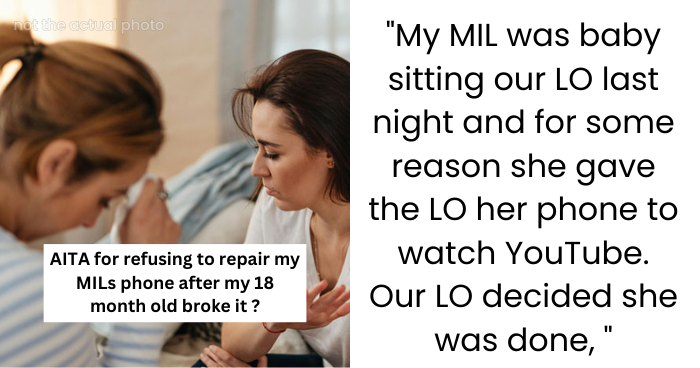MIL Hands Toddler Her Phone, Expects Parents to Pay for Damage, but They Stand Their Ground
The Original Poster (OP) of this thread has written in to share a story about their mother-in-law (MIL) who happened to be babysitting their 18-month-old child when it happened. i.e. the MIL passed her phone to the child to watch YouTube, something the OP and their partner (ideally) never do at home. Not surprising, the phone was dropped from a high chair by a toddler and the screen was repaired. MIL is now expecting OP and their partner to fork over money for the repairs, saying the child is their responsibility.
But OP doesn’t think that’s fair for multiple reasons. They claim they weren’t there, that MIL chose to give up her phone though that is not their typical, and that the cost is a huge financial strain for them but pocket change for a wealthy MIL. A compromise was proposed: MIL pays for the repairs out of pocket now—that the OP could pay her back installments, and MIL would’ve none of this, saying it’s their problem to figure out. Right now, the OP is left wondering if they are on the wrong side of this standoff.
Giving your phone to a toddler is basically saying goodbye to your screen and hello to chaos
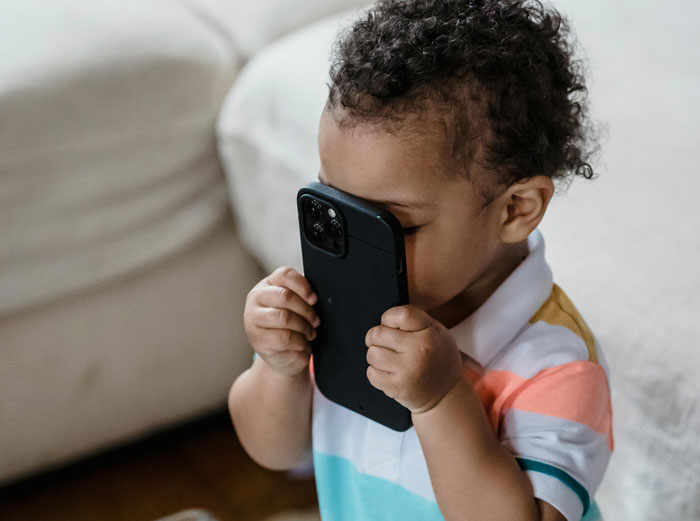
The author’s mother-in-law was babysitting their child and gave the 18-month-old her phone, but when she was done, the little one threw it to the floor
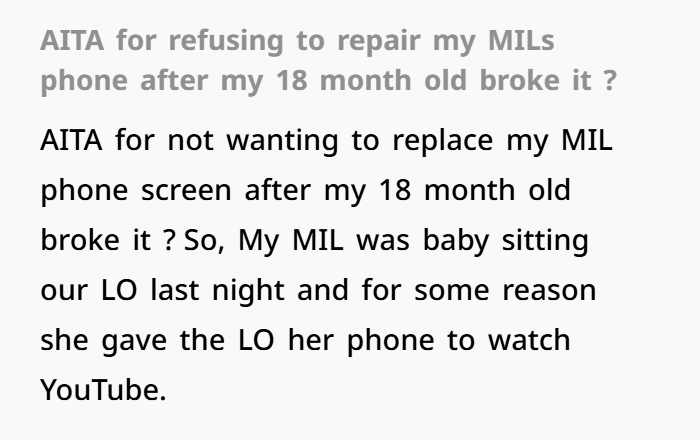
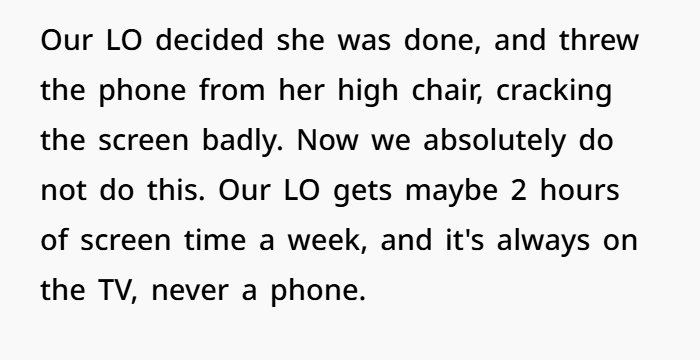
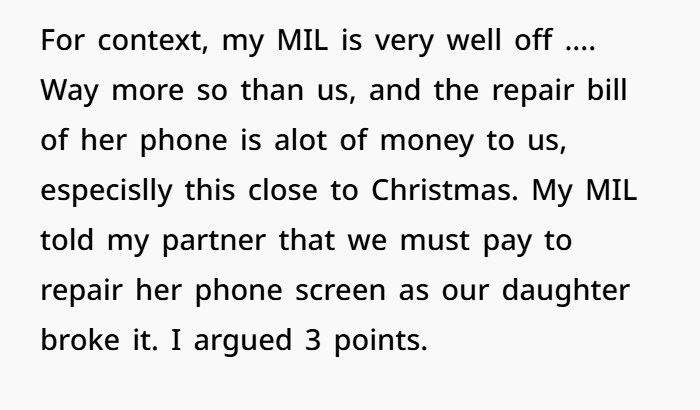
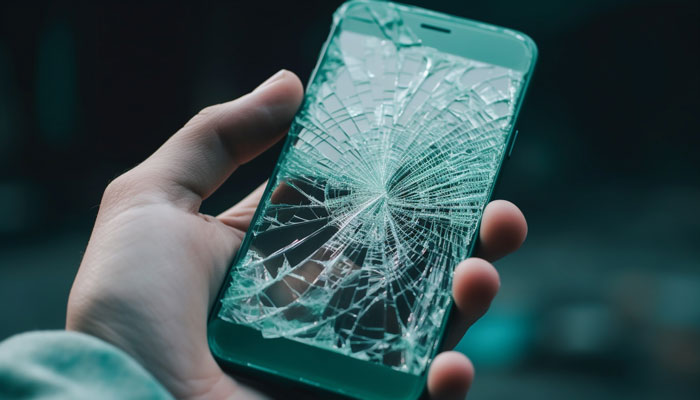

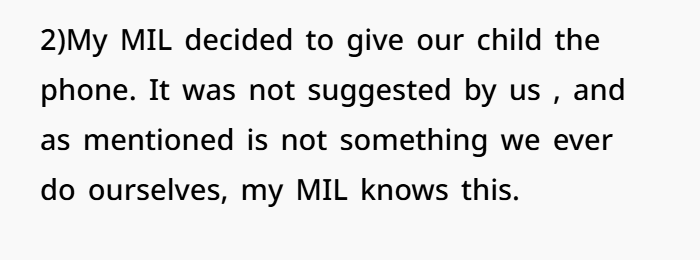

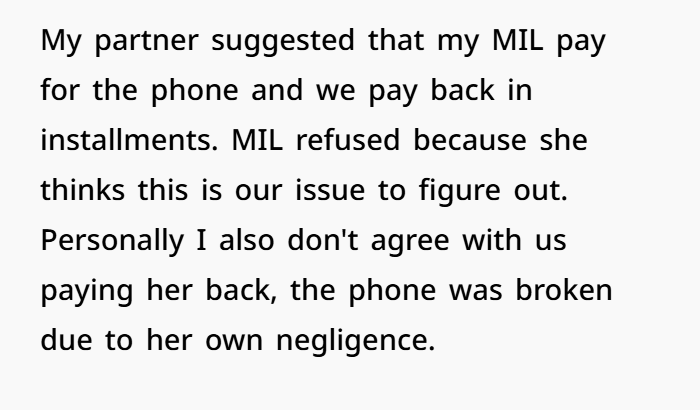


Accountability in Accidents Involving Children
This can often lead to debates about accountability, as is so often the case when children are present. Legally and socially, whether or not someone is found responsible depends on the circumstances: which adult had custody at the time, whether the events were predictable, and whether the adults supervising made any choices along the way.
Who Bears Responsibility When a Child Causes Damage?
Under the theory of vicarious liability, parents are typically responsible for the actions of their child. On the other hand, this accountability is usually valid when the parents are directly supervising the child or if they have acted carelessly. Here, parents were absent and the child left to a carer – the MIL in this case. In related conflicts, courts and case law frequently focus on the steps the keeping party took to be careful. Now, it could be considered irresponsible to give a toddler a fragile, expensive object like a cell phone, given the propensity of toddlers to engage in impulsive and destructive behaviors.
In situations with babysitters or caregivers, liability has been placed on the person supervising the party when their decisions caused the damage. The reasoning is that the caregiver owes a duty of care while they are in charge of the child. That may make some or all of the responsibility MIL’s since she did in fact pass over the phone, even though she knows the rules of the parents, and her child’s developing nature.
Financial Dynamics and Family Etiquette
That brings up the financial element, making this even more of a difficult situation. Either way, the OP also points out where the income disparity is significant: MIL is wealthy, the phone repair is a burden for them. With financial empathy often something that family members employ to make amends when such conflicts arise. Whether MIL is trying to get full payment and not taking into account that this puts a strain on the parents seems inflexible, at best, and inconsiderate, at worst.
However, a fairer solution might have joint liability. I think the OP that suggested p/payment is a way of compromise and the OP was not agreeing being responsible. The refusal of MIL to even entertain this option indicates that they simply do not appear to understand their financial reality.
Related Case Studies
In 2017, a small claims case echoed a similar situation when a babysitter accidentally knocked a child’s juice onto the laptop. The court sided with the parents, stating that the babysitter had dominion over the situation and acted unreasonably. Such informal family arrangements rarely end in court, but mediators often apply the same principles to disputes — who made the decision and whether it could be avoided.
The general consensus from netizens is that the mother-in-law should not have given a baby her phone in the first place
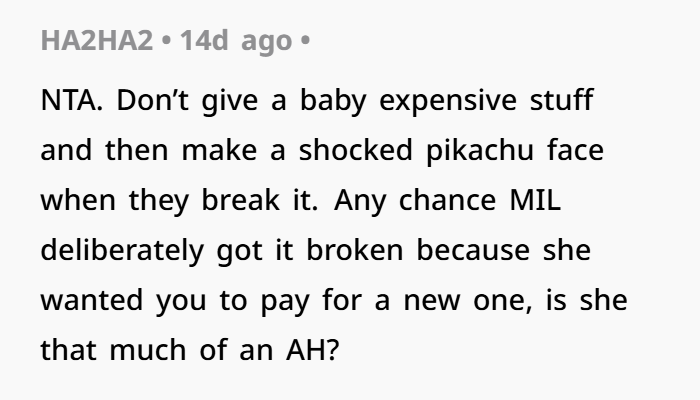
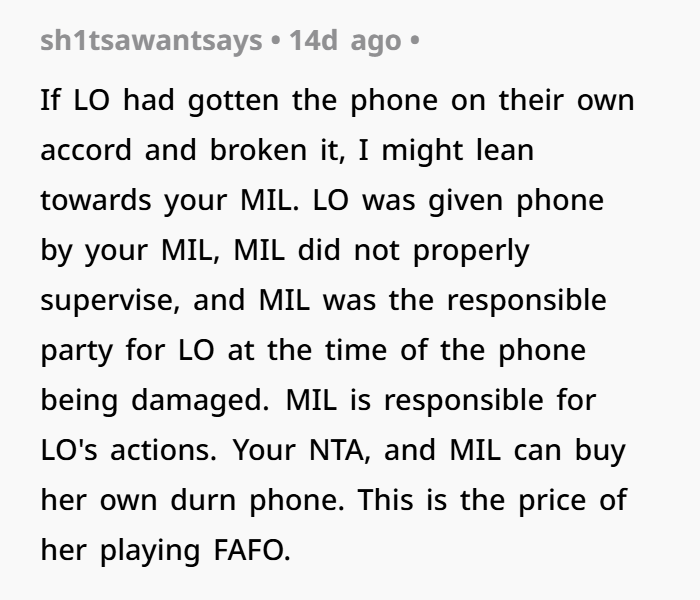
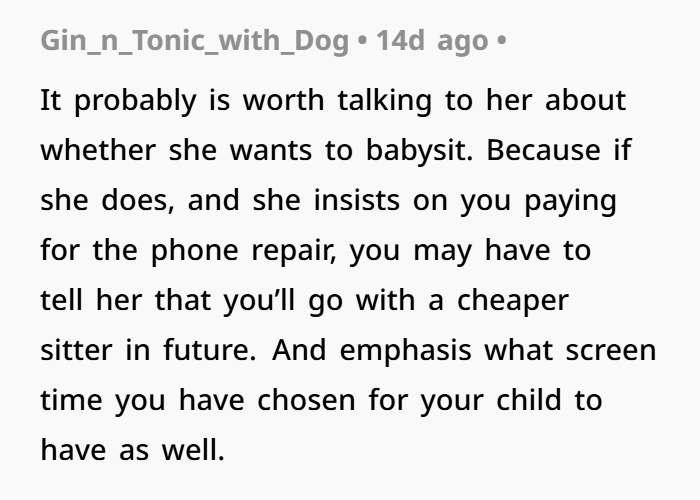
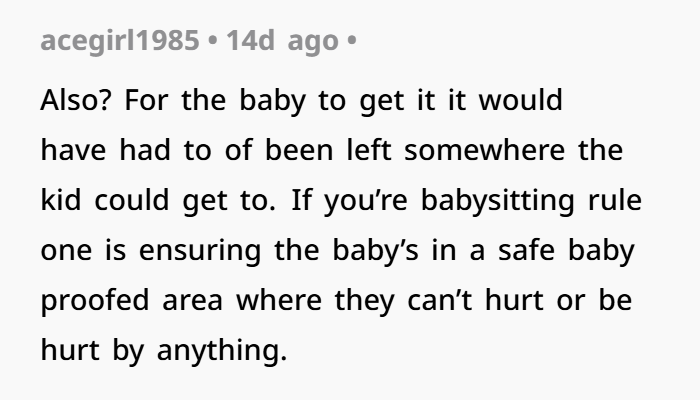
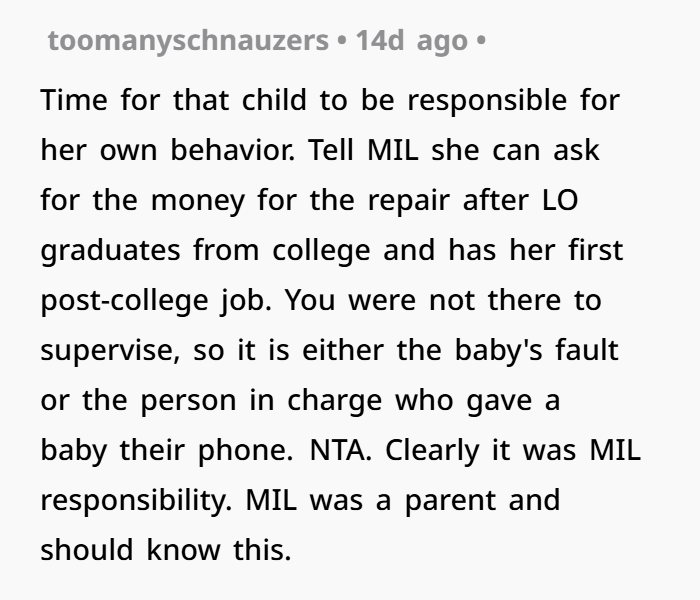
OP, you are Not the A-hole. In this case, it was mostly the MIL’s fault, as she chose to give an 18-month-old a phone knowing the hazards. It makes sense what you say: you were not there, the phone was in possession of the child under MIL care, and the financial load is heavy. You could always offer to pitch in, but you’re right in holding that you think the bulk should be on her.

